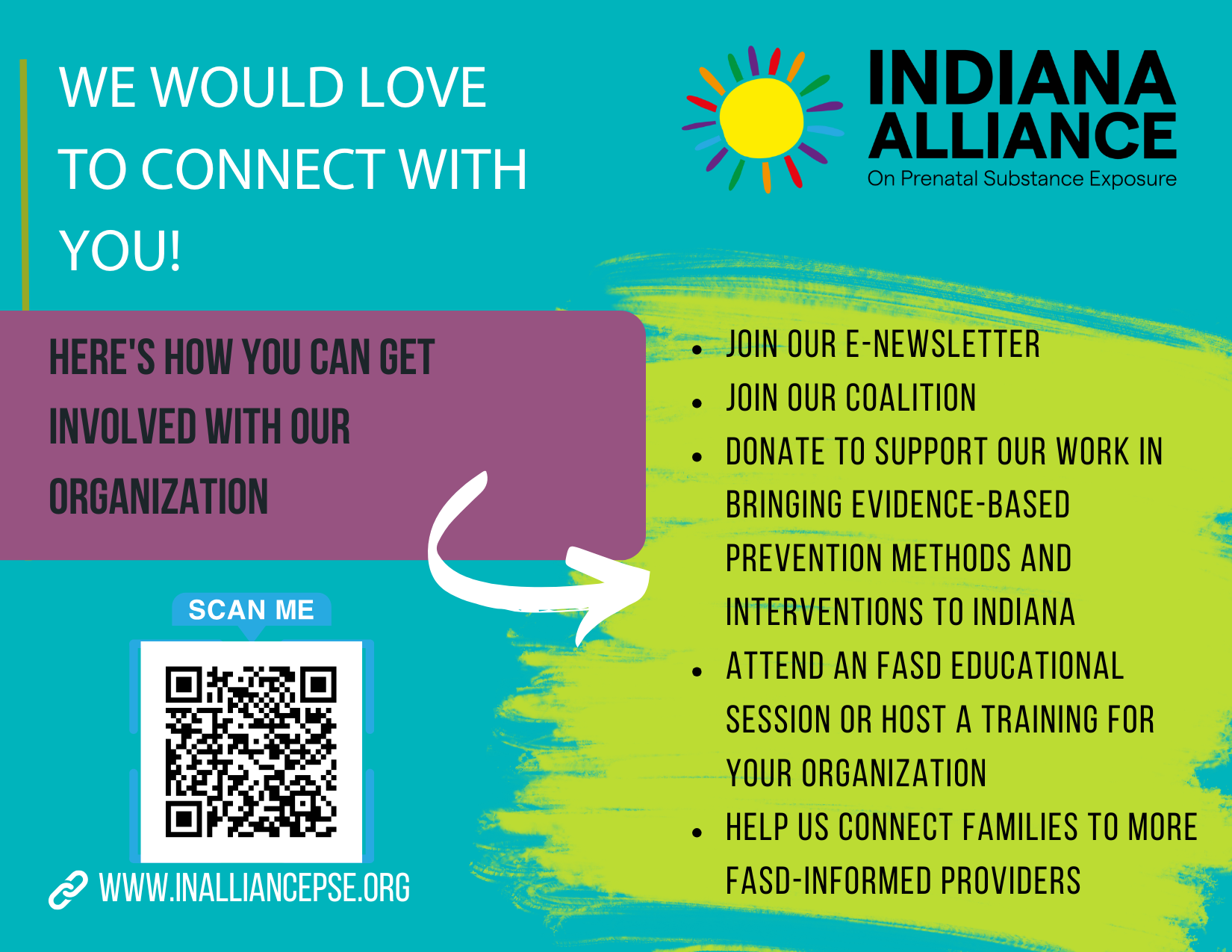As a new school year approaches, parents may find it useful to share information about fetal alcohol spectrum disorders with teachers and other school personnel. The information below is designed to help educators understand the effects of prenatal exposure to alcohol so that children and youth have the best opportunities to learn and succeed.
A Alcohol. My child was exposed to alcohol before birth.
B Brain. Alcohol use during pregnancy can permanently damage a child’s brain.
C Corpus callosum. The part of the brain that passes information between the left side (rules) and the right side (impulses). It may be damaged or absent with FASD.
D Dysfunction of sensory integration. My child is sometimes sensitive to fluorescent lights, tags on clothing, visual over-stimulation, noises, smells, etc.
E Emotional. My child can be very emotional and often has a low frustration tolerance.
F Fetal alcohol spectrum disorders (FASD). This is the umbrella term for the damage done when alcohol is used during pregnancy.
G Give. Please give my child praise when he does something well or when he tries hard.
H Hyperactivity. My child might have a hard time sitting for long periods of time.
I Immaturity. Because of his FASD, my child may often act half his age.
J Judgment. My child may exhibit poor judgment. This is due to the damage to the frontal lobe of his brain and because of this he needs supervision and lots of reminders.
K Kindness. Kindness and redirection are far more effective than punishment.
L Learn. My child can learn but he learns differently.
M Mentally challenged. FASD is the number one cause of intellectual disabilities in North America, but most people with FASD have IQs within the normal range.
N National Organization on Fetal Alcohol Syndrome (www.nofas.org). To learn more, visit the NOFAS website as well as those of their state affiliates.
O Other drugs. “Of all the substances of abuse, including heroin, cocaine, and marijuana, alcohol produces by far the most serious neurobehavioral effects in the fetus, resulting in life-long permanent disorders of memory function, impulse control and judgment.” (Institute of Medicine 1996 Report to Congress)
P Parenting. My child’s behaviors may appear, to those who do not understand FASD, to be the result of poor parenting. Please be slow to blame and quick to consult me.
Q Quiet time. My child has problems with self-regulation and may need quiet time and space to calm down and regroup. Providing this will reduce unwanted behaviors.
R Repetition. Memory issues are very frustrating for my child, so please repeat and reteach often.
S Sleep disorders. My child often has trouble sleeping, please understand if he is tired.
T Time. Time is an abstract concept and my child does not “feel” it like you and I do.
U Understanding. It will make your life and my child’s life much easier if you understand that he has a disability. He cannot change something he cannot control.
V Visual. Many people with FASD learn best with visual and hands-on type lessons.
W Willful. Some of my child’s behaviors may appear willful, but please remind yourself often of the brain damage!
X X-ample. My child needs examples of good behavior and appropriate role models.
Y You. You will make a difference in my child’s life. It is my prayer that it is a positive one.
Z Zero. The safest choice is to use zero alcohol during pregnancy. Please help me spread the word that FASD is 100 percent preventable!
Originally published in 2016
Credit / Sources
This article was published by the North American Council on Adoptable Children (NACAC) and appeared on their website. The article was written by Kari Fletcher, NACAC parent support specialist.
Kari Fletcher is a parent support specialist for NACAC’s Adoption Support Network program, which provides peer support to adoptive families across Minnesota. She is the adoptive parent of two children who have fetal alcohol spectrum disorders and previously worked at the Minnesota Organization on Fetal Alcohol Syndrome.
If you are interested in learning more, you can view a webinar Kari presented for NACAC on the effects of alcohol exposure.







